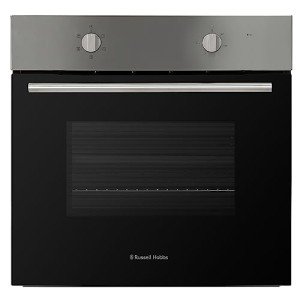The Integrated Cooker: A Comprehensive Guide to Modern Cooking Solutions
The evolution of kitchen appliances has reinvented food preparation and cooking techniques, making meal preparation more efficient and enjoyable. Amongst these developments, the integrated cooker stands out as a versatile and space-saving addition to contemporary kitchen areas. This post delves into the various elements of integrated cookers, consisting of types, advantages, features, and a contrast with traditional cooking techniques.
What is an Integrated Cooker?
An integrated cooker is a compact cooking home appliance that integrates multiple cooking functions into one unit. Often built into kitchen cabinets, these cookers are created to conserve space while improving kitchen looks. They typically incorporate a range of functionalities, such as baking, grilling, steaming, and even pressure cooking.
Secret Features of Integrated Cookers
- Multi-Functionality: Integrated cookers can perform different cooking tasks, removing the need for multiple appliances.
- Space-Saving Design: These cookers fit perfectly into kitchen units, making them ideal for modern-day homes with restricted space.
- Advanced Technology: Many integrated cookers come equipped with smart technology, such as programmable settings, touch-screen controls, and connectivity alternatives.
- Energy Efficiency: Built with contemporary products and design, they typically take in less energy compared to traditional cooking techniques.
Types of Integrated Cookers
The marketplace offers numerous types of integrated cookers, each with its distinct set of functions and performances. Here are the most typical types:
| Type | Description | Example Use |
|---|---|---|
| Built-in Ovens | Ovens that are fitted into wall units or cabinetry | Baking bread, roasting meats |
| Induction Hobs | Cooktops that use electro-magnetic energy to heat pots and pans | Quickly boiling water, sautéing |
| Steam Ovens | Appliances that cook food utilizing steam for much healthier outcomes | Steaming veggies, fish |
| Microwave Ovens | Integrated microwaves for quick heating and cooking | Reheating leftovers, making popcorn |
| Combination Ovens | A mix of conventional and steam cooking innovations | Baking while guaranteeing moisture retention |
Benefits of Using Integrated Cookers
Integrated cookers offer a host of benefits over traditional cooking tools. Below are some of the key benefits:
- Space Efficiency: Ideal for compact cooking areas, integrated cookers utilize vertical areas effectively.
- Streamlined Cooking Process: With multiple functions available, users can shift from one cooking method to another with very little effort.
- Improved Aesthetics: Many integrated cookers can be found in sleek styles that blend well with modern-day kitchen design.
- Improved Cooking Control: Programmable features enable precise cooking, guaranteeing better meal results.
Integrated Cookers vs. Traditional Cooking Appliances
When thinking about meal preparation options, it is vital to weigh the advantages of integrated cookers versus standard cooking appliances. Below is a contrast chart:
| Feature | Integrated Cooker | Conventional Appliances |
|---|---|---|
| Area Efficiency | High | Lower |
| Multi-Functionality | Yes | No (needs several appliances) |
| Energy Consumption | Often lower | Can be higher |
| Cooking Speed | Faster (particularly with induction) | Varies |
| Style | Modern and sleek | Varies widely |
The integrated cooker is a forward-thinking home appliance that satisfies the demands of today's hectic lifestyle. Its multiplicity of functions, space-saving design, and streamlined looks make it a rewarding investment for any modern-day kitchen.
For those seeking to save time, space, and effort in meal preparation, integrated cookers provide an exceptional option that boosts the cooking experience while providing tasty, well-prepared meals.
Regularly Asked Questions (FAQs)
1. What is the average rate of an integrated cooker?
The rate of integrated cookers can differ extensively, generally ranging from ₤ 500 to ₤ 3,000 depending upon features, brand name, and size.
2. How much maintenance do integrated cookers require?
Maintenance often consists of routine cleansing of surface areas and checking for any software application updates if they feature clever innovation. It's advisable to follow the producer's standards.
3. Can I replace my existing oven with an integrated cooker?
Yes, integrated cookers can often replace standard ovens, but it is vital to seek advice from with an expert to make sure compatibility with your kitchen design.
4. Are integrated cookers hard to set up?
Installation can be uncomplicated for those with DIY experience. Nevertheless, working with a qualified technician is suggested to guarantee correct setup.
5. Who benefits Click Home from utilizing an integrated cooker?
Families, time-pressed people, and those residing in compact apartments especially take advantage of the multi-functionality and space-saving style of integrated cookers.
In this age of convenience and effectiveness, integrated cookers are redefining how we approach food preparation. Whether you are an experienced chef or a cooking amateur, incorporating this effective home appliance into your kitchen can significantly enhance your cooking experience.

